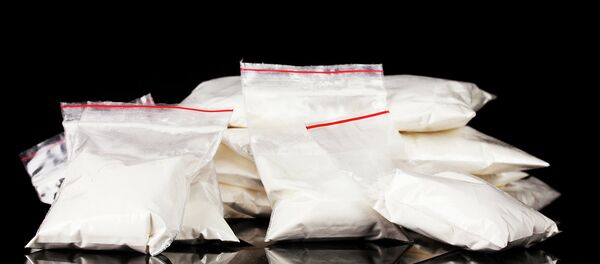Led by Professor Anne Lingford-Hughes, consultant psychiatrist and addiction expert in Imperial's Department of Medicine, a research group explored the effects of nalmefene — a compound that modulates opioid receptors in the brain — in alcoholics. The drug had previously been demonstrated to be successful in treating alcoholism and also pathological gambling, seemingly by dulling the desire for alcohol, or the need for a "win" — although, exactly how it affected the brain was unclear.
Window to brain's reward system could lead to better treatments for #alcoholism https://t.co/eVTwYgvaaB pic.twitter.com/EHyCQnjmNo
— Medicine at Imperial (@FoMImperial) March 20, 2017
For the study, the team recruited 22 problem drinkers not currently seeking treatment to gauge the effects of nalmefene on their brains. Volunteers were required to perform tasks while subject to MRI scans, and administered a single 18 milligram dose of the drug.
To induce reward anticipation, participants were shown a screen depicting flashing symbols, some of which entitled them to win small cash rewards — snapshots of their brain activity were taken throughout, highlighting when they anticipated rewards.
New paper out! "Nalmefene Reduces Reward Anticipation in Alcohol Dependence — An Experimental fMRI Study" https://t.co/HMETTLBJB4
— Matt Wall (@m_wall) January 14, 2017
Unlike other studies, the volunteers were also under the influence of alcohol during the tests, receiving an intravenous infusion to raise their blood-alcohol levels to the UK (80 mg per 100 milliliters of blood). Scans revealed when patients took nalmefene with alcohol, activity in two areas of the brain — the dorsal and ventral striatum — decreased.
Neuroscientists have speculated these regions are fundamental to habit-formation, with activity shifting from the ventral to the dorsal region as the habit develops — in the heavy drinking volunteers, the feedback system was dampened down by nalmefene, linked with reduced reward anticipation.
Professor Lingford-Hughes says her team's findings validate such conjecture, demonstrating nalmefene blunts response in key areas of the brain involved in habit formation — in essence, the drug reduces the anticipation of alcohol by interfering with a brain's dopamine-driven reward systems.
"This fits with my clinical experience, where people describe how being on opiate blocking drugs means they may start drinking, but they quickly lose any desire to — it doesn't taste nice or give them a good feeling" Professor Lingford-Hughes told Sputnik.
Professor Lingford-Hughes believes the study could lead to new, more effective treatments for alcoholism, and also potentially other deleterious substance addictions.
"I can guess at this point that similarly positive results can be achieved with dependency and usage driven by impulsivity, or stress. Although, in the case of some cravings, such as cocaine, I'm not sure it would be so successful — that would be best dealt with via psychological treatment, not chemicals," she continued.
In February, a study conducted by neuroscientists concluded it was possible to identify which teenagers will use drugs in a "problematic" way when they get older, based on studies of an individual's mental reward anticipation.
"Our study suggests these remedies work in blunting responses to reward stimuli in those with existing substance issues, dulling the drive that makes them want more of the same thing. Treating people who have never used drugs, or have not built up issues around taking them may not work, or may even be counterproductive," she explained.
"I hope another positive result that will be achieved by our study is encouraging researchers to look beyond the brain's reward system to understand and explain addiction, there's an almost myopic focus on this when investigating other areas could offer much greater insight into how and why people become addicted to things. It simplifies what is a very complex and hotly debated topic in academia," Professor Lingford-Hughes concluded.





